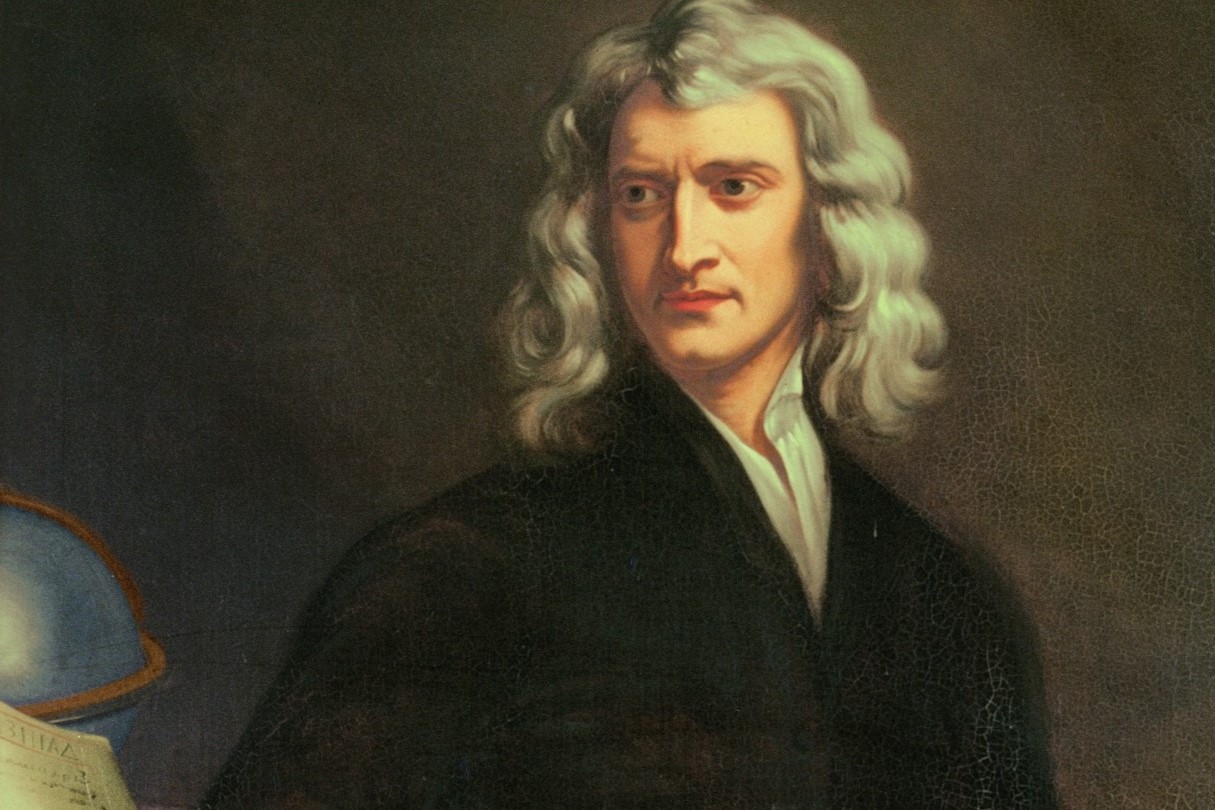
Isaac Newton, one of history's most influential scientists, revolutionized our understanding of the natural world. Who was Isaac Newton? He was an English mathematician, physicist, astronomer, and author. Born in 1643, Newton's work laid the foundation for classical mechanics. His book, "Mathematical Principles of Natural Philosophy," introduced the laws of motion and universal gravitation. Newton also made significant contributions to optics and calculus. Beyond science, he dabbled in alchemy and biblical chronology. Despite his genius, Newton had a complex personality, often clashing with contemporaries. Ready to learn more? Here are 50 fascinating facts about Isaac Newton that will blow your mind!
Early Life and Education
Isaac Newton's early years were marked by curiosity and a thirst for knowledge. Here are some fascinating facts about his beginnings:
- Born on January 4, 1643, in Woolsthorpe, England, Newton was a premature baby who wasn't expected to survive.
- His father, also named Isaac Newton, died three months before he was born.
- Newton's mother, Hannah Ayscough, remarried when he was three, leaving him in the care of his grandmother.
- He attended The King's School in Grantham, where he showed an early interest in mechanics and drawing.
- Newton was initially removed from school to become a farmer, but his headmaster convinced his mother to let him return.
- In 1661, he enrolled at Trinity College, Cambridge, as a subsizar, meaning he worked for his keep.
Scientific Discoveries
Newton's contributions to science are monumental. His work laid the foundation for many modern scientific principles.
- He formulated the laws of motion, which describe the relationship between a body and the forces acting upon it.
- Newton's law of universal gravitation explains how every mass attracts every other mass in the universe.
- He invented calculus independently around the same time as German mathematician Gottfried Wilhelm Leibniz.
- Newton's book, "Philosophiæ Naturalis Principia Mathematica," often called the Principia, is one of the most important works in the history of science.
- He built the first practical reflecting telescope, known as the Newtonian telescope.
- Newton's experiments with light led to the discovery that white light is composed of a spectrum of colors.
Personal Life and Character
Newton's personal life was as intriguing as his scientific endeavors. His character and habits reveal much about the man behind the discoveries.
- Newton never married and had no children, dedicating his life to his work.
- He was known to be reclusive and often worked in isolation.
- Newton had a famous rivalry with Robert Hooke, another prominent scientist of his time.
- He suffered two nervous breakdowns, possibly due to the immense pressure he placed on himself.
- Newton was deeply religious and spent a significant amount of time studying the Bible.
- He was known for his meticulous nature, often rewriting his notes multiple times.
Later Years and Legacy
Newton's later years were marked by recognition and continued influence. His legacy endures in various fields of study.
- In 1696, he became Warden of the Royal Mint, where he reformed the English currency.
- Newton was elected President of the Royal Society in 1703, a position he held until his death.
- He was knighted by Queen Anne in 1705, becoming Sir Isaac Newton.
- Newton's work influenced countless scientists, including Albert Einstein.
- He died on March 31, 1727, and was buried in Westminster Abbey.
- Newton's face appeared on British banknotes, a testament to his lasting impact.
Fun and Lesser-Known Facts
Beyond his well-known achievements, there are many lesser-known facts about Newton that add depth to his story.
- Newton once stuck a needle into his eye socket to study how light affects vision.
- He had a pet dog named Diamond, who allegedly caused a fire that destroyed some of his manuscripts.
- Newton wrote more on religion and alchemy than on science and mathematics.
- He was a member of Parliament for a brief period but spoke only once, to ask someone to close a window.
- Newton's interest in alchemy led him to experiment with various substances, including mercury, which may have contributed to his mental health issues.
- He was known to be very secretive about his work, often waiting years before publishing his findings.
Impact on Modern Science
Newton's influence extends far beyond his own time, shaping modern science in profound ways.
- His laws of motion are still taught in physics classes worldwide.
- Newton's work on optics laid the groundwork for the field of physical optics.
- His method of fluxions, now known as calculus, is a fundamental tool in mathematics.
- Newton's gravitational theory paved the way for the study of celestial mechanics.
- His approach to scientific inquiry, emphasizing observation and experimentation, remains a cornerstone of the scientific method.
- Newton's work inspired the Enlightenment, a period of intellectual and cultural growth in Europe.
Controversies and Criticisms
Despite his genius, Newton's life was not without controversy. His actions and beliefs sometimes sparked debate.
- Newton had a long-standing feud with Leibniz over the invention of calculus.
- He was accused of using his position at the Royal Mint to settle personal scores.
- Some of Newton's religious views were considered heretical by the standards of his time.
- His alchemical pursuits were often criticized as pseudoscience.
- Newton's treatment of rivals, such as Hooke and Flamsteed, has been described as ruthless.
- He was known to be extremely sensitive to criticism, often responding with hostility.
Influence on Popular Culture
Newton's legacy extends into popular culture, where he remains a symbol of genius and discovery.
- The story of the apple falling from a tree, leading to his theory of gravity, is one of the most famous anecdotes in science.
- Newton has been portrayed in numerous films, TV shows, and books.
- His name is often used as a synonym for genius, alongside figures like Einstein and Da Vinci.
- The Newton crater on the Moon is named in his honor.
- Apple's logo, an apple with a bite taken out, is said to be inspired by the story of Newton's apple.
- Newton's life and work have been the subject of countless biographies and academic studies.
Miscellaneous Facts
Some additional facts about Newton don't fit neatly into other categories but are equally fascinating.
- Newton was an accomplished writer, producing works in Latin and English.
- He once served as a judge in a witchcraft trial, reflecting the superstitions of his time.
Newton's Legacy
Isaac Newton's contributions to science and mathematics changed the world. His laws of motion and universal gravitation laid the groundwork for classical mechanics. Newton's work in optics and his invention of the reflecting telescope expanded our understanding of light and vision. He also made significant strides in mathematics, developing calculus independently around the same time as Leibniz.
Newton's curiosity and relentless pursuit of knowledge serve as an inspiration. His ability to connect seemingly unrelated phenomena into a cohesive theory demonstrates the power of critical thinking and creativity. Even centuries later, his discoveries continue to influence modern science and technology.
Understanding Newton's life and work gives us a glimpse into the mind of one of history's greatest thinkers. His legacy reminds us that the quest for knowledge is a journey without end, always pushing the boundaries of what we know.
Was this page helpful?
Our commitment to delivering trustworthy and engaging content is at the heart of what we do. Each fact on our site is contributed by real users like you, bringing a wealth of diverse insights and information. To ensure the highest standards of accuracy and reliability, our dedicated editors meticulously review each submission. This process guarantees that the facts we share are not only fascinating but also credible. Trust in our commitment to quality and authenticity as you explore and learn with us.


